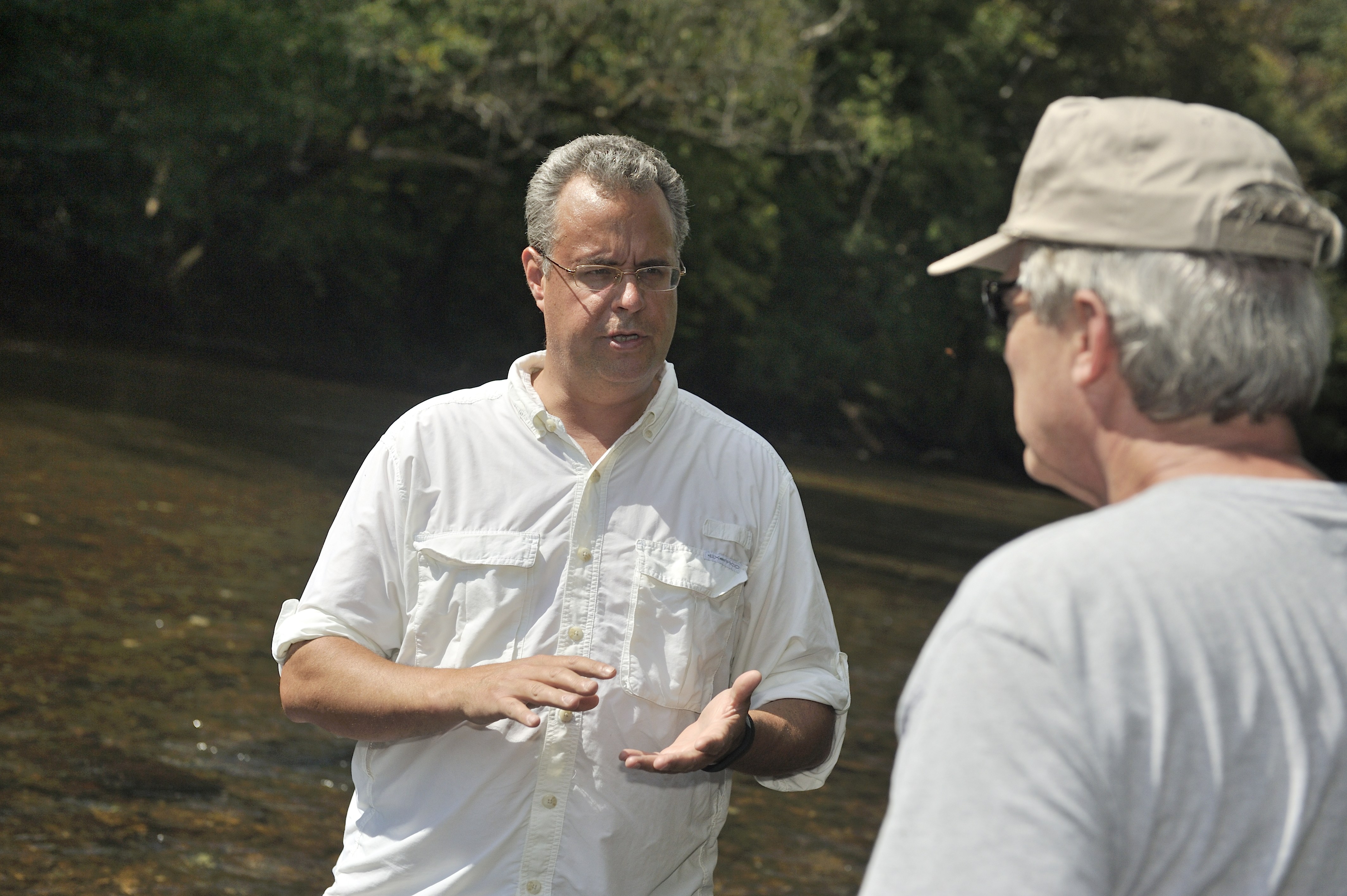Restoration biologist Jess Jones receives Rachel Carson Award

Jess Jones, a restoration biologist in the College of Natural Resources and Environment and co-director of Virginia Tech’s Freshwater Mollusk Conservation Center, received the Rachel Carson Award for Scientific Excellence from the U.S. Fish and Wildlife Service.
He is the college’s second recipient of the award.
Given in both individual and group categories, the award recognizes exemplary scientific contributions to achieving extraordinary results in fish and wildlife resources. It is named in honor of renowned ecologist Rachel Carson, author of the groundbreaking book “Silent Spring.”
Jones, who is employed by the U.S. Fish and Wildlife Service but stationed in Virginia Tech’s Department of Fish and Wildlife Conservation, researches the restoration of endangered freshwater mussel populations, conservation management of rivers, and mussel propagation, population dynamics, and genetics.
The mussel restoration techniques developed and employed by Jones and his team serve as a model and are replicated by fisheries agencies in other parts of the country. Each year Virginia Tech’s mollusk center propagates a total more than 10,000 mussels of six to 10 species for release. Every mussel is tagged, sexed, and measured, and the data is recorded for future monitoring.
Mussels, the most imperiled group of animals in the country, make aquatic habitats more suitable for themselves and other organisms by acting as filters to purify waters. Not only do they clean bodies of water, they also help rebuild the chain of life for other fisheries and wildlife in the ecosystem.
Jones leads the freshwater mussel restoration work for two multimillion-dollar Natural Resource Damage Assessment and Restoration cases in the upper Tennessee River basin, where many rare mussel species live. He and his team have consistently demonstrated a high quality of recovery success in the field and laboratory.
He and his staff developed the first laboratory protocols for the captive care of host fishes for the university’s aquaculture facility; helped facilitate academic exchanges among the U.S. Fish and Wildlife Service, Virginia Tech, and the Freshwater Fisheries Research Center in Wuxi, China; conducted countless seminars; and published widely recognized scientific research in numerous peer-reviewed publications.
Jones is also a mentor and instructor. He has taught Applied Conservation Genetics, a graduate-level course; presented lectures to fisheries classes; and currently serves on the committees of four master’s projects and one doctoral project.
“I am honored to receive the award,” Jones said. “To be recognized for doing what I love means a lot to me.”
“Rachel Carson was a visionary leader,” he explained. “Not only did she see the ecological connections between pollution and ecological health, and that human health was tied to it, she also wrote about these connections with such clarity and passion that her work resonated with the nation, leading to research and the passage of environmental laws.”
“I have always enjoyed what I do as a biologist,” Jones continued. “Working in rivers and with freshwater mussels is a real passion of mine. Rivers are such dynamic systems that require a special way of thinking.”
“Much of my success is a direct result of the hard work of the staff at the Freshwater Mollusk Conservation Center, the lab manager, the students, and the technicians who work there. We all care a lot about mussel and river conservation. To make each year successful requires dedication. I am proud of our achievements together and this partnership between the U.S. Fish and Wildlife Service and university.”
Jones received his bachelor’s degree, master’s degree, and Ph.D. from Virginia Tech.
Written by LauraBess Kenny of Richmond, Va., a senior majoring in communication in the College of Liberal Arts and Human Sciences.




